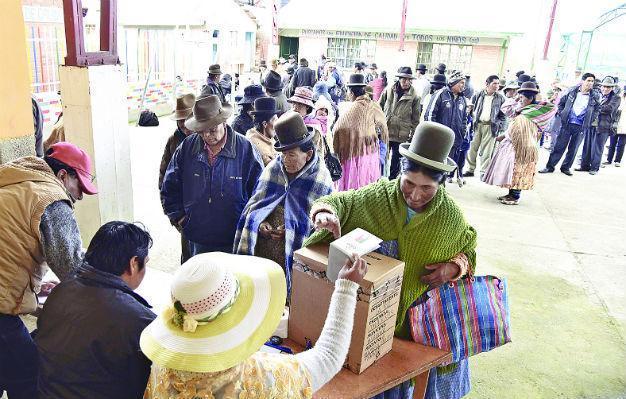Bolivia VP says vote on Morales re-election a tie, too early to call
LA PAZ – Agence France-Presse

AFP photo
The government of Evo Morales urged patience following a referendum that would allow the Bolivian president to seek a fourth term, saying the results were tied despite media projections to the contrary.Local media projected late Feb. 21 that Bolivians had rejected a move to change the constitution and deny Morales a bid to seek a fourth term, potentially extending his presidency until 2025.
Voters had their say on a constitutional amendment that would allow Morales and Vice President Alvaro Garcia to seek another five-year term when their current one ends in 2020. Both have been in power since 2006.
Morales lost the referendum vote 52.3 percent to 47.7 percent, according to unofficial figures cited on private ATB television. Unitel television gave the “no” vote as 51 percent to 49 percent.
Not so fast, Garcia said.
“We are facing a very clear technical tie, and it is highly probable that these figures will drastically change” as the official count proceeds, Garcia said, signaling that media projections showing that a no vote had prevailed could be wrong.
Garcia said that the rural vote - where Morales has most support - still needs to be counted, as do votes cast by Bolivians living abroad.
“So it would be better to hold your enthusiasm and calmly wait for results,” Garcia told reporters. “All your celebration may well turn into weeping.”
Morales had said he expected to see 70 percent in support of his bid, so a loss would be the worst - and first - national political defeat for Morales, who has led the landlocked Andean nation since 2006.
Voting on Feb. 21 was mandatory, and some 6.5 million Bolivians were eligible to cast ballots.
Opposition figures however were celebrating based on the media projections.
“Bolivia said no!” declared Santa Cruz Governor Ruben Costas. Samuel Doria Medina - defeated twice by Morales in presidential elections - said the vote “buried” plans to have single party rule in Bolivia.
Last month, Morales became the longest serving president since Bolivia’s independence from Spain in 1825 - a rare accomplishment in a country known for military coups and shaky, short-lived governments.
Now 56, Morales is also Bolivia’s first democratically elected president of indigenous heritage.
















